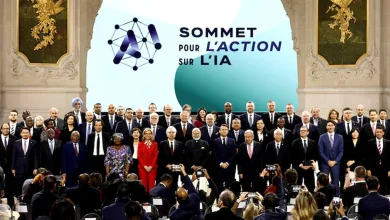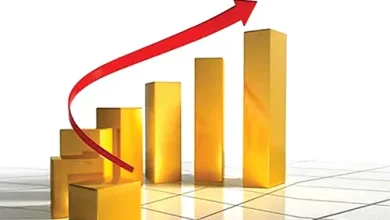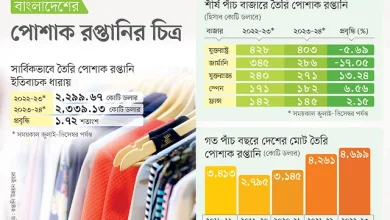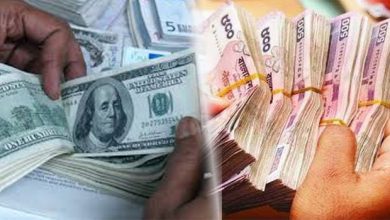Economy looks up globally, but when will it look up in Bangladesh

There’s light shining at the end of the tunnel for the global economy in 2024. At least that is the prediction being made by the economists as well as IMF, OECD, JP Morgan, S&P, Goldman Sachs and such institutions.
The best news for global economy in 2024 is that inflation will decrease somewhat. The biggest economy of the world, United States, managed to avoid a recession in 2023 and will be able to do so again in the new year. There will be no great crash. Instead, it will see a soft landing. In other words, they will be able to decrease inflation further with no significantly detrimental impact on employment. The worries are with China. Their growth is to remain slow. However, on the whole, the global economy will predictably do well.
As it is, global economy didn’t do all that badly as imagined in 2023. Most countries, including the US, hiked interest rates and brought down inflation. So 2024 ushers in hope for all, though not so much for Bangladesh. If the light of hope is also to shine on Bangladesh in a short while, the question is how short is that while?
Begins with a crisis
Nature meted out a cruel deal to mankind with the Covid-19 pandemic in 2020, bringing the world economy to the halt. The next spate of cruelty was manmade. World economy tripped up badly again when Russia attacked Ukraine in February 2022. Global economy hasn’t been able to emerge from that as yet.
Covid and the Russia-Ukraine war is not the only reason behind Bangladesh’s economic crisis. The lowest tax-GDP ratio, artificially over-valuing the taka and the fragile financial sector has exacerbated the economic crisis further. Making matters worse, there is high inflation and an imbalance in financial transactions. The year 2024 begins with these ‘handed-down’ crises.
Economists feel it will be quite difficult to carry out these reforms. And while IMF made some concessions when releasing the first two installments, it will not be so compliant in the new year
The year 2023 began with an inflation rate of 8.57 per cent. That inflation has now shot up to 9 per cent. In these 12 months, foreign currency reserves have plummeted by 12 billion dollars, that is 1 billion dollars or 100 crore dollars a month. At the outset of the year, the dollar rate was 105 taka and that is now officially 110 taka, though actually 120 taka in reality.
Due to the liquidity crisis, the call money rate (interest rate on one bank borrowing from another) has increased from 5.77 per cent to 9.16 per cent. With foreign exchange earnings falling, the deficit in the financial accounts is now almost 4 billion dollars or 400 crore dollars, though over the past 12 years Bangladesh hadn’t seen any financial account deficit. Growth in export earnings and remittance has dropped too.
The question is, how to emerge from this situation? The crisis, after all, has accumulated due to a number of reasons. Experts feel that it will not be easy to emerge from this.
How to break out of this predicament
Last year was the year to rebuild ties with the International Monetary Fund (IMF). Bangladesh has received two installments of the 4.7 billion dollar or 470 crore dollar loan. Two more installments are due in this new year. Quite a lot of preparatory tasks had to be carried out in 2023 as part of fulfilling the conditions. But there are many more conditions to be fulfilled in 2024. This includes a decrease in tax cuts, adjustment of fuel prices, justifying subsidies, decreasing default loans, regularly publishing the list of vulnerable assets of the state-owned banks, reducing financial risks of state-owned institutions, etc. In other words, the government has quite a few more difficult reforms to make. We’ll have to borrow a dialogue from the Chorki web series ‘Myself Allen Swapan’ and asked the government, “Can you?”
Economists feel it will be quite difficult to carry out these reforms. And while IMF made some concessions when releasing the first two installments, it will not be so compliant in the new year. That’s how IMF’s former official Ahsan H Mansur feels too. So the major challenge in the new year will be to keep IMF satisfied.
Investment must be increased
The area of relief for global economics in 2023 was bringing inflation under control to a great extent. Therein lies Bangladesh’s crisis. The dollar crisis still prevails. The attempt to stem the depletion of reserves by pulling the reins on imports was not very effective. Bangladesh also got the proof that just fixing a 9 per cent interest rate does not increase investment. Then there was the persistent energy crisis. And so the state of investment has been poor over the last three years.
If the economy is to turn around, investment must be pulled out of this predicament. The risk that has emerged over macroeconomic stability must also be dispelled. For this, it must be determined in whose hands the control of the economy will lie. This will be particularly pertinent after the 7 January election. The central bank has worked independently over the past two years. What role a political finance minister will play in determining economic policy will become important in the new year.
The new government perhaps will pay more attention to the development of the economy in order to divert attention away from the worldwide crisis in legitimacy of elections and democracy. But that will require much more difficult decisions to be made for reforms
Ever since the central bank governor took over responsibilities, he has spoken quite often on when the economic crisis will pass. But there have been no predictions. In a statement made at the start of November, he had said the situation has reached a nadir.
There is now scope to fall any lower. It is now time for the economy to turn around. He hoped that after the national election, stability and a normal trend would return to the economy. The crisis will clear by March. Yet in an interview in the last week of November, he said the economy would turn around in June.
What’s the trick of turning around?
The economists are not quite so optimistic. They see a shortfall in the initiatives required to be taken to turn around. Describing the crisis to Prothom Alo, economist Zahid Hossain said there are broadly speaking three problems with the economy. The first problem is inflation. The second is imbalance in foreign transactions. The third is fragility of the financial sector. Default loans have increased in the banking sector. Assets are rotting. Many institutions have capital deficit. These three problems must be resolved. After all, macro economy is like a type of oxygen. If a patient has breathing problems, there is no use in treating other diseases. The patient’s breathing problems must be fixed first.
The global economy is dreaming of turning around in the new year. There are indications of that too. Zahid Hossain feels that, “there is very little fear for the global economy in 2024. It is also felt that interest rates won’t go up. As a result, the price of fuel and various commodities will remain stable. Such an international circumstance will pave the way to bringing stability to our economy. But this will not happen automatically. We will have to adopt certain initiatives too.”
So what is to be done? According to Zahid Hossain, we had tried to bring stability to the economy in 2023 too. But that strategy did not yield results. The path we took was not correct — these mistaken strategies must be acknowledged. There appeared some initiatives including an increase in interest to control high inflation. But that was not enough. It must be seen what measures other countries adopted. It may be necessary to take stronger steps to control inflation in the new year. Market management has also become a vital issue. Prices of various commodities increase at various times. Big businesspersons are displaying opportunist proclivities. Action must be taken against those responsible for disrupting the market.
The BAFEDA or ABB model to bring balance to foreign transactions, must be dropped. Dollar flow through official channels must be increased. All institutions of the financial sector are not the same. If a lack of confidence spreads extensively in the financial sector, it will be hard to keep the economy running. There is recognition of the financial sector problems and no dearth of programmes. But there is sluggishness in implementing these. Unless the actions are galvanized, the cyst will turn into cancer.
The new government perhaps will pay more attention to the development of the economy in order to divert attention away from the worldwide crisis in legitimacy of elections and democracy. But that will require much more difficult decisions to be made for reforms. This will be the major challenge of the new year. At least one can hope that the government will come forward to take up the challenge.







